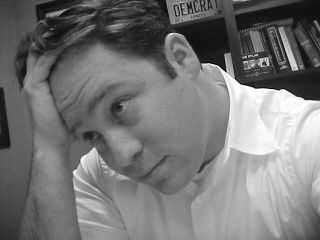From Salon, snipped here:
The Wall Street Journal features a science column today that points out one of the dangers -- or, depending on your perspective, benefits -- of spreading false information: Even if you retract it, people sometimes believe it.
The Journal's Sharon Begley previews an about-to-be-released "international study" on perceptions about the Iraq war. Its conclusions: People believe what they want to believe. Researchers showed people a list of stories from Iraq. Some of them were true, but two of them -- stories saying that Iraqis had engaged in an uprising against Saddam Hussein's Baathist party in Basra and had executed Coalition prisoners of war -- were retracted as untrue shortly after they were first reported in the press. As Begley writes, the researchers found that people who were skeptical about the war discounted the false stories, while people who supported war didn't. "People who were not suspicious of the motives behind the war continued to rely on misinformation," one of the researchers said. Begley writes that people sometimes hold fast to false information when it "fits with their mental model," which people seek to retain "whatever it takes." She says it's a cautionary tale for journalists -- if you put out false information, people will continue to rely on it even if you later retract it.
We wonder if the Journal's editorial board is listening.
As the Columbia Journalism Review reported last year, the Journal's editorials in the run-up to the Iraq war were "hawkisk without a shade of doubt." The Journal said
that the war would be "above all about American self-defense," and that, if the United Nations wouldn't do it, the United States would have to act to "prevent the emergence of nuclear- and biological-armed chaos." When Colin Powell briefed the United Nations on the WMDs that turned out not to exist, the Journal declared the case airtight. "The Powell evidence will be persuasive to anyone who is still persuadable," the Journal wrote. "It proves that Saddam is defying the will of the U.N. one more time, hiding his weapons in the hope that the world will again lose its will to stop him. "
In her column today, Begley bemoans the fact that, "six months after the invasion, one-third of Americans believed WMDs had been found, even though every such tentative claim was disconfirmed." We wonder how they got that idea.

No comments:
Post a Comment